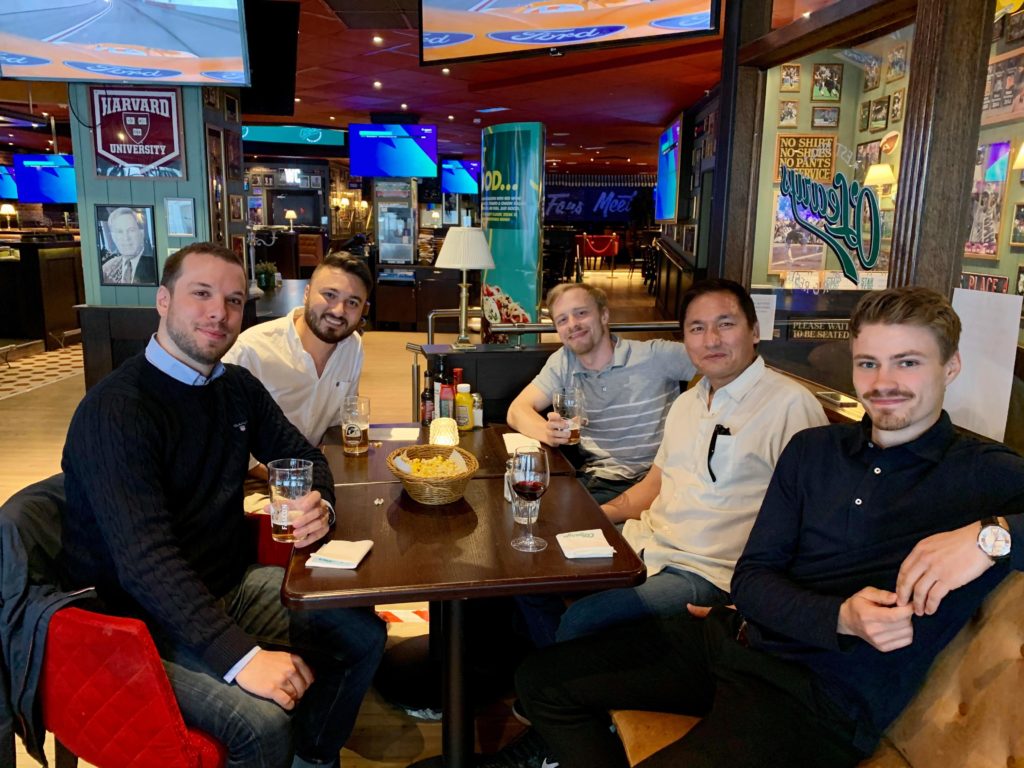I graduated this year in June 2020 from Örebro University, Sweden. My master’s program in information security management was a two-year program comprising 120 credits. We were the first batch of information security students in Örebro and were thus unique with the skills needed in the market. With an ever-increasing number of cybersecurity incidents as well as the huge financial losses relating to such incidents, information security management aimed at safeguarding an organisation’s information assets has become a key strategic issue for many organisations. Thus, when I applied for the course under the Swedish Institute Scholarship in early 2018, there was a lot of talk in the media about information security, so, it felt completely right for me to further my education in this area.
In retrospect, I feel I did the right thing. I had the best times at the university. I am happy with my education and have learned a lot during the entire course. I am now well equipped to not only protect but also manage and provide consultation services regarding cybersecurity and sensitive data. The course provided in-depth studies within the information security field with both theoretical and practical elements. The teachers have a high level of competence and were always there to answer our questions. But at the same time, they also expected highly of the students. Teaching was based on case-based learning and flipped classroom pedagogy. This means our study should be done before the lectures. We were expected to go through the lecture slides and supporting videos/talks in advance and actively participate in class to have fruitful discussions and delve deeper into the topic. This way, we had the chance to exchange our knowledge and learn not just from the teachers but also from our own classmates as well as guest lecturers invited from other universities and relevant industries. Those pedagogical methods encouraged us to think critically and developed our problem-solving skills which are necessary to address the complexity of information security management in organisations.
One of the interesting courses within the programme was the project work we did with the university’s industry partner which helped us to gain practical hands-on experience. As required for security application course towards the end of the first semester, my team-mate and I undertook a project to develop IT security policy guidelines and training materials for a company, CAB Group AB, Örebro. Later my classmate and I were very happy and satisfied to hear that CAB had put our work to practical use. They found it appropriate, and are currently implementing the IT security policy and training materials we developed for them as part of our study programme.
During the first year, we gained a broad understanding of the subject and developed advanced knowledge and skills within the information security management. The second-year focused more on research and investigation. In today’s complex world, protecting an organisation’s information assets is difficult and requires more than solely technical skills, and this is where my master’s thesis comes in. I did on the topic “methods & factors for enhancing employees’ information security awareness in both within the private and public sector organisations”. I was motivated by the fact that information security management is a multi-dimensional discipline and human aspects play a major role. Human errors are the direct or indirect cause for the majority of information security incidents. So, it’s crucial for us to concentrate more on the people, to ensure all employees are aware of the policies, rules and regulations regarding securing of information. Currently, my two professors and I are in process of refining my Thesis in order to get it published in one of the most reputed security journal, “Journal of Computer & Security”.
It had been a busy 2-years, but I fully enjoyed my study journey in Sweden and I did not feel the long wait even for the long dark winters. I rejoiced every summer visiting Swedish friends and celebrated special occasions with Swedish families and learned quite a bit about Swedish culture and norms. The mandatory Fika breaks were refreshing between the lectures, with sweet kanelbulle (cinnamon bun) which helped to revive my energy. I also managed to learn some Swedish and advanced to SFI (Swedish For Immigrants) level D, and I am happy that I can now casually converse in Swedish. I am indebted to my teachers, classmates and the faculty of Örebro University School of Business for the continuous support and pass with distinction results. I am also grateful to the Swedish Institute scholarship for the funding which allowed me to complete my degree without any financial stress or difficulty during the entire programme.
Khando Khando

Me with a few of my classmates at the graduation farewell party
